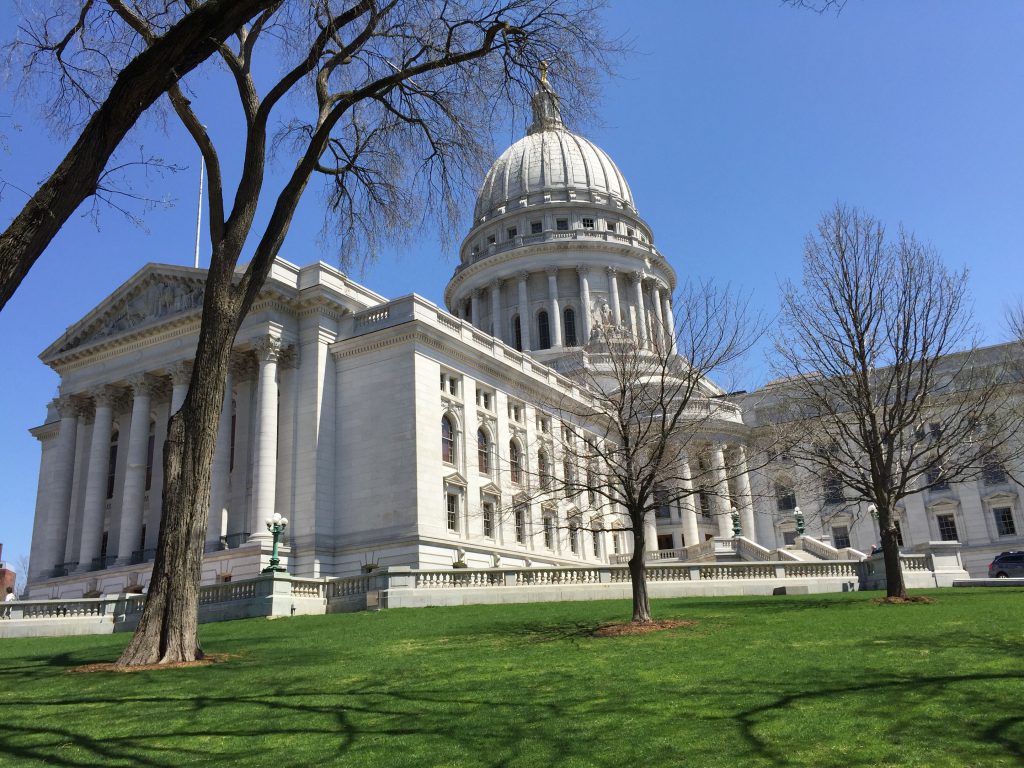Who’s Afraid of Occupational Licensing?
Actually state licensing gets overwhelming support. Except from right-wing activists.
Who’s (still) afraid of occupational licensing? It appears that, yet again, the answer is right-wing organizations and their Republican allies in the Wisconsin Legislature.
As was the case last session, these groups are once again bringing their attack on professional licensing to our state, positioning themselves as “defenders of the little guy” in the face of “big, bad government.” And while their messaging may follow that line, with a little digging, it becomes clear they may have something other than just “red tape” on their mind.
For a moment, let’s take licensing opponents at their word: according to them, licenses are unnecessary measures that do little to help public safety or inform consumers, but instead just create an unfair playing field for small and new businesses. This line of thinking is so central to anti-licensure arguments that the Wisconsin Institute for Law & Liberty went so far as to title its recent reports on occupational licensing in Wisconsin, “Fencing Out Opportunity” — reports in which WILL consistently decries occupational licenses as “government permission slips to work.” Continuing this logic, anti-licensing groups would have you believe that, in yet another “anti-business” conspiracy, governmental licensure standards are not even in place to maintain consumer confidence or public and professional safety. Instead, they claim, they are there because professional organizations want to limit newcomers to their fields, thus “restricting competition” and driving up prices.
But luckily, to hear some groups tell it, we already have a ready-made, market-based solution for replacing licenses: user reviews! In testimony before the Assembly Committee on Regulatory Licensing Reform last session, the Koch Brothers-funded group Americans For Prosperity pushed this line, suggesting that the need for occupational licensing has been lessened thanks to various ex post facto crowdsourced solutions, such as the famously reliable review website “Yelp.” Yes, the same Yelp that was recently accused of manipulating its reviews.
Now that we’ve gotten that out of the way, let’s dig a little deeper into this topic, and see if these anti-licensure crusaders are telling the whole story. First and foremost, the purpose of licensure is to protect the public’s health and safety, as well as to protect consumers from bad-faith actors who would otherwise try to defraud them. These are particularly important in cases where consumers might not be able to fully evaluate the quality of a service before using it, or where individuals face certain immediate risks from using low-quality services.
And while few would argue that fields such as engineering or health care don’t fit the bill for needing these kinds of immediate safeguards, licensing opponents — for now — have primarily targeted professions whose need for licensure is less obvious, such as cosmetology or landscape architecture. Although these fields may not immediately spring to mind when one thinks of public health and safety, they really should: cosmetology professionals across the country undergo rigorous training in proper sanitation measures due to the high risk of infection posed by dirty implements and skin-to-skin contact, and landscape architects are trained in critically important accessibility and environmental safety measures. And these are just two examples out of many. There are myriad under-the-radar fields that have been targeted for deregulation, almost all of which demonstrate a clear need for licensing. From radiology technicians to massage therapists to sign language interpreters and beyond, hundreds of licensed professions protect millions of Americans in important, if unheralded, ways.
Don’t just take it from me — survey data bears out widespread support for licensing among those practitioners most affected by supposedly “onerous” licensing requirements. As part of last session’s push for deregulation, the state Department of Safety and Professional Services was instructed to survey numerous stakeholders on the benefits and drawbacks of licensing, and the responses were fairly uniformly in support of continued licensing requirements.
Of the individuals surveyed, 77.57% indicated that their license was either “extremely” or “very” useful in improving their skills, 77.56% indicated that their specific license was “extremely” or “very” important to protect the public from harm or danger, and 90.11% indicated that licensing in general was either “extremely” or “very” important for protecting the public. If we expand those numbers to include individuals who indicated that licensing was at least “somewhat” important for those goals, the numbers jump even higher to 93.95%, 92.59% and 95.77%, respectively.
And what of the much-touted “hardship” obtaining or retaining licenses supposedly poses? In those cases, 88.26% respondents described the amount of hardship they faced in getting initial licenses as “none,” “small” or “moderate,” and an eye-popping 97.37% percent indicated the same low level of hardship in retaining their licenses. In contrast, only 0.4% of surveyed individuals (231 out of 58,146) responded that initial licensing barriers were so high that they couldn’t obtain a license, and even fewer — 0.28% — responded that the requirements to retain their licenses were high enough to shut them out of their field. If that’s the conspiratorial “fence” to which WILL and their ilk so regularly refer, it’s clearly not working very well.
So, if the numbers don’t bear out the claims that licensing is “unnecessary” or “overly burdensome,” what other possible reasons could these right-wing free-marketeers have for opposing occupational licenses? Generously, licensing opponents provide us with an answer to this question in their own published reports: licensing demonstrably increases workers’ wages. And this wage premium is not insignificant — licensed workers can command as much as 15% higher wages over unlicensed workers in comparable fields. This too is borne out by survey results: according to the same DSPS report referenced above, 84.3% of respondents indicated that their license was “extremely,” “very” or “somewhat” useful in increasing their wages or salary.
While the average Wisconsinite would cheer this fact, anti-licensing groups are doing their best to spin this as a net negative. Instead of welcoming higher wages for Wisconsin’s working people, licensing opponents are resorting to the same tired clichés about “increased prices” and “decreased competition” that they have trotted out time and time again in opposition to progressive measures ranging from unions to workers’ rights to the minimum wage. As usual, these right-wing groups have one interest at mind before all others: a relentless race to the bottom in service of corporate greed. Without robust licensing measures in place, businesses would be able to get away with paying substandard wages, all while continuing to charge consumers the same prices they normally would and putting those same consumers at risk.
So, while right-wing organizations and Wisconsin Republicans may be afraid of occupational licensing, the licensed professionals of Wisconsin and I are decidedly not. Last session, we were able to defeat the push for deregulation and keep effective and necessary licensing regulations in place. This session, we will continue to lead this fight on behalf of the workers and citizens of Wisconsin. To be sure, licensing opponents are extremely well-funded and committed to their goals. But together, we’ve beaten them before, and we can beat them again.
This op-ed was originally published by the Wisconsin State Journal.
Rep. Jonathan Brostoff represents the 19th Assembly District in the city of Milwaukee.
Op-Ed
-
Wisconsin Candidates Decry Money in Politics, Plan to Raise Tons of It
 Dec 15th, 2025 by Ruth Conniff
Dec 15th, 2025 by Ruth Conniff
-
Trump Left Contraceptives to Rot; Women Pay the Price
 Dec 8th, 2025 by Dr. Shefaali Sharma
Dec 8th, 2025 by Dr. Shefaali Sharma
-
Why the Common Council’s Amended Budget is Good Policy for Milwaukee
 Nov 20th, 2025 by Alds. Marina Dimitrijevic and Russell W. Stamper, II
Nov 20th, 2025 by Alds. Marina Dimitrijevic and Russell W. Stamper, II





















